21 Articles
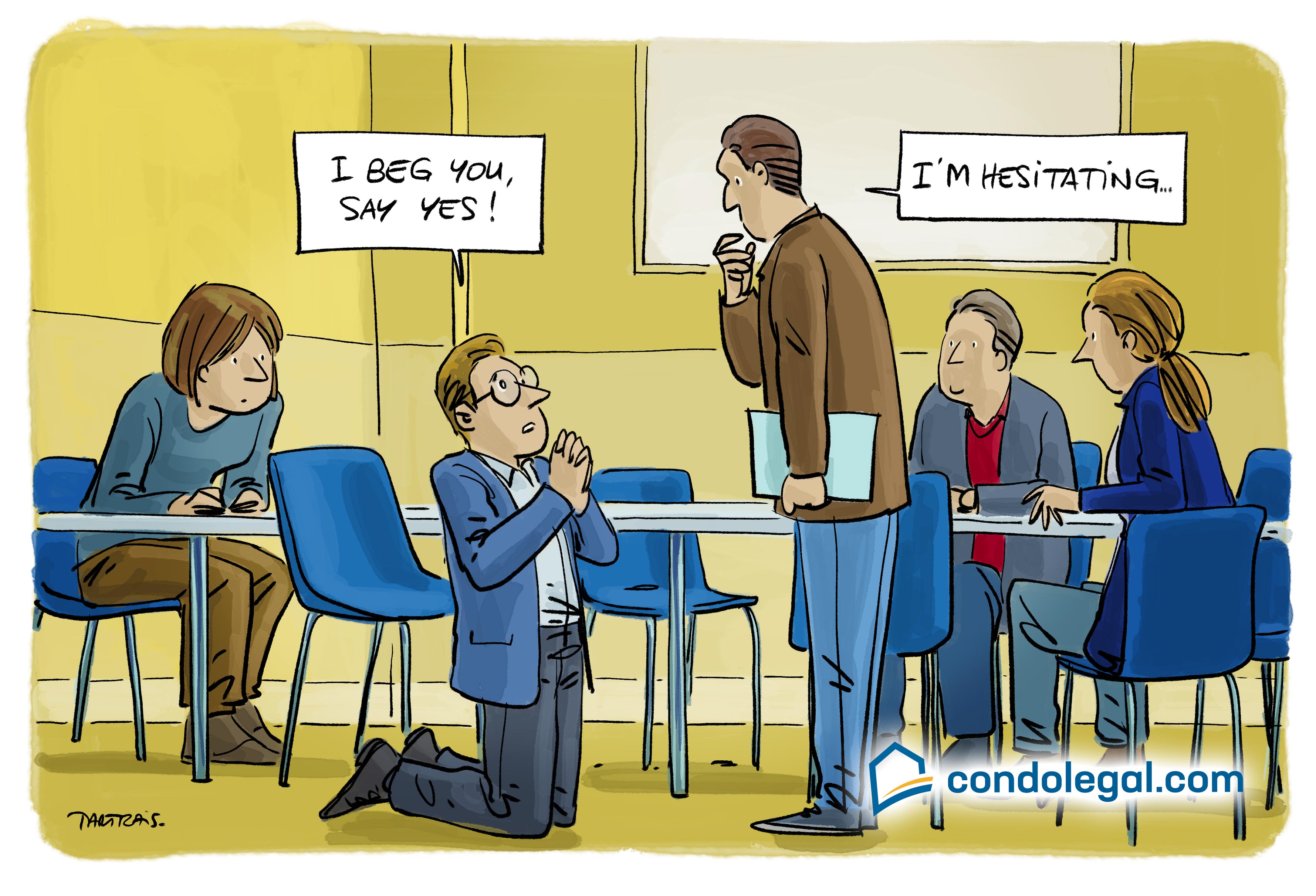
In co-ownership law, unanimity is a rule that requires the agreement of all co-owners, not just those present or represented at the meeting of co-owners. To adopt a unanimous decision, it requires the favourable opinion of all the co-owners, no votes against, and no abstentions. Unanimity is the highest level of consensus and, therefore, the most difficult to achieve. This unanimity requirement only applies to certain co-ownerships. In addition, it is important to note that…...

Whatever the type of building they have chosen, all co-owners, without exception, are called upon to participate in meetings of co-owners. Thus they can vote on the questions on the agenda, and take various decisions necessary for the sound operation of the co-ownership. The co-owners are called upon to meet periodically for questions dealing with current administration, maintenance and operation of the syndicate, and sometimes exceptionally for specific questions required by the circumstances. This factsheet is an overview…...

In general, a syndicate of co-ownership is considered a non-profit organization (NPO). As such, it benefits from a tax exemption. However, like any legal person, the syndicate of co-ownership must comply with various tax obligations, failing which it may face penalties that could have significant repercussions on the financial situation of the co-ownership and its co-owners. It is notably required to maintain strict accounting and file certain tax returns each year. Moreover, tax audits may be conducted…...

The right to vote is recognized as an essential element of any modern society, and as such, co-owners cannot be deprived of it except as provided in the law. In addition, each co-owner has, in principle, at the meeting a number of votes proportional to the relative value of his fraction. However, in certain circumstances, it is provided that the co-owner may have his right to vote suspended or reduced, by the sole effect of…...
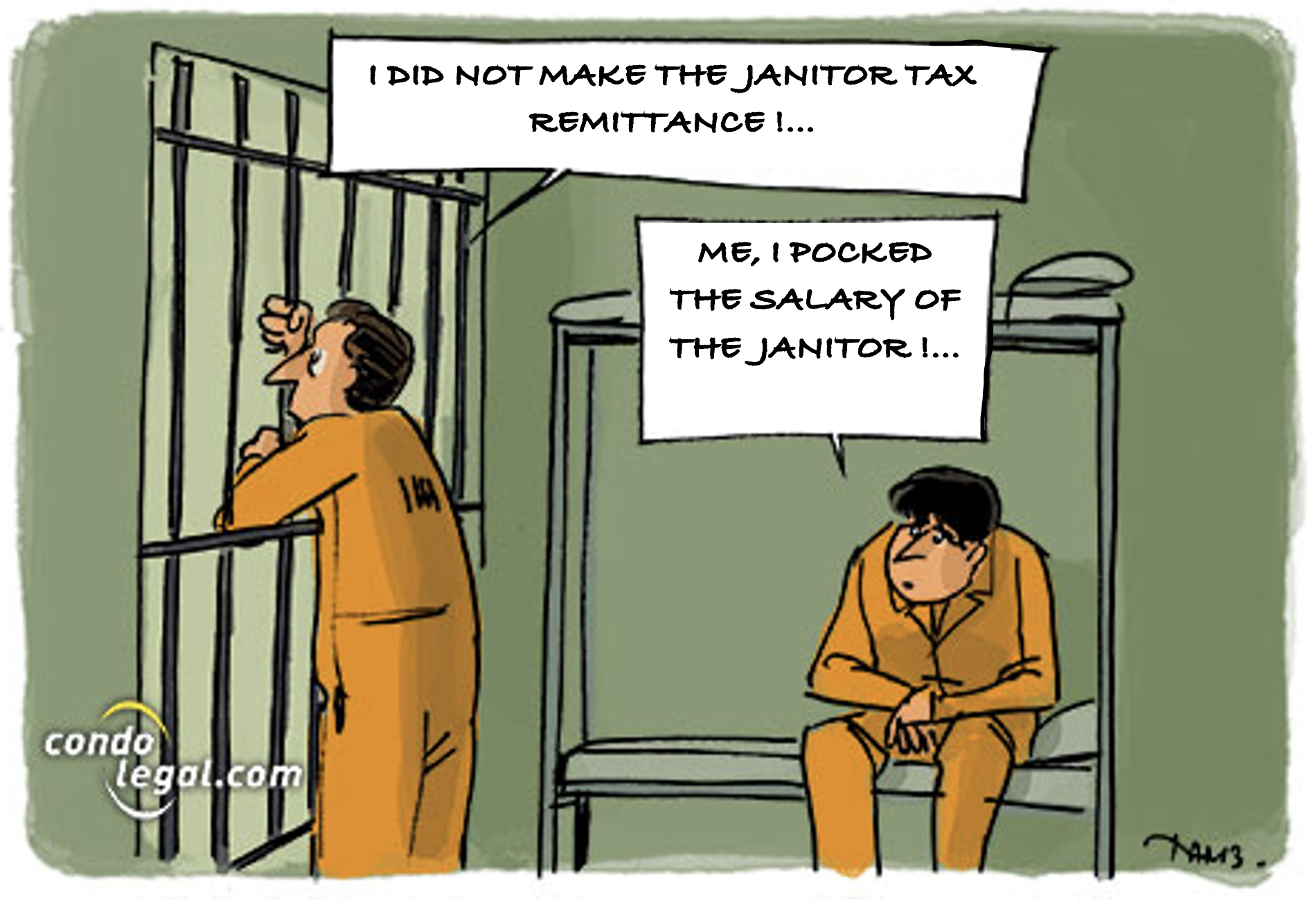
The duties and obligations of directors are at the heart of the good governance of a co-ownership. As part of their duties, directors are required to ensure that the syndicate of co-owners complies with the laws. This is why, in addition to the duties of diligence and loyalty of directors set out in the Civil Code of Québec, specific obligations, described as "statutory", are imposed on them. Some statutes provide for a directors' liability regime…...

Most co-ownership directors assume this activity free of charge, effectively excluding the collection of any amount of money. But, contrary to popular belief, they can be paid. Usually, the remuneration granted to a director is mainly symbolic and is not similar to a remuneration similar to that paid to a condominium manager. Their remuneration takes various forms: salary, honorariums and attendance fees, just to name a few. This financial compensation, a part of the administrative…...
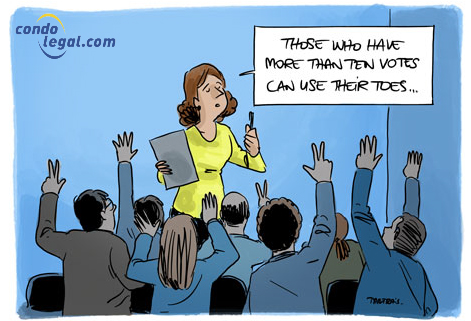
In order for the board of directors to validly deliberate and make decisions, the declarations of co-ownership generally provide that a minimum number of directors must participate to the meeting. This requirement is called the quorum. Unless the board of directors is composed of a single director, the quorum at a meeting of the board of directors is generally set by the By-laws of the immovable by a majority of the current directors. Recall that the quorum…...
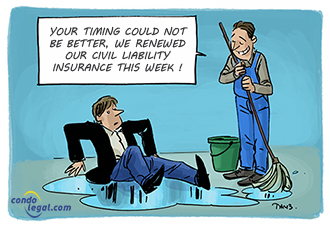
In the same way as any other natural or legal person, a syndicate of co-owners is likely to incur civil liability towards third parties, including co-owners. Responsibility is the counterpart of power: where authority lies, there is responsibility. A syndicate must therefore act with prudence and diligence, taking the necessary measures to prevent accidents normally foreseeable, ensuring that the common areas are safe and free of traps. Moreover, if his liability is engaged, this translates into the financial contribution of the…...
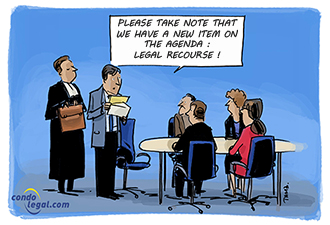
The juridical personality of the syndicate is distinct from the one of the co-owners and directors. His acts are binding only on himself, besides for the exceptions provided by law. The faults committed by the syndicate have consequences only on its own civil liability and not on the directors. Under these conditions, they are held harmless by the syndicate and assume no responsibility for any costs, expenses, charges or losses they have incurred for the administration of…...

The declaration of co-ownership defines the terms and conditions of living together. It applies to the co-owners and, in principle, to the occupants and tenants s of the building. It is up to the Board of Directors, as soon as it becomes aware of it, to ensure that its content is respected, and, if necessary, to give formal notice to the offending co-owner to cease any violation of the declaration of co-ownership. Failure to do so…...
